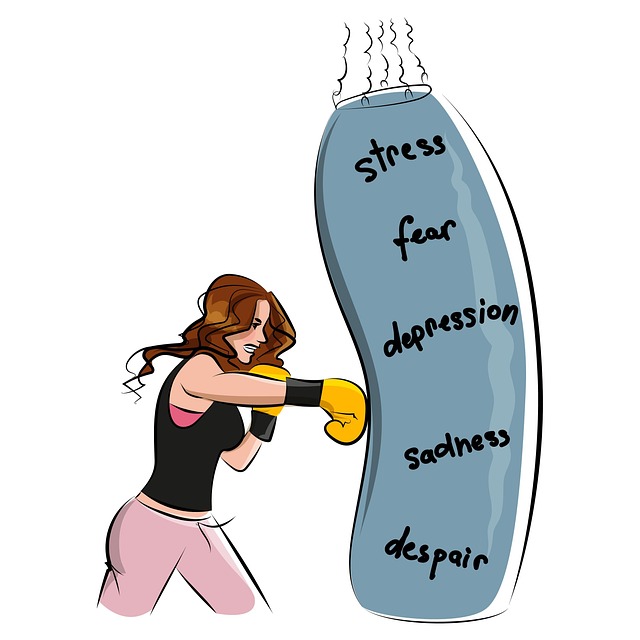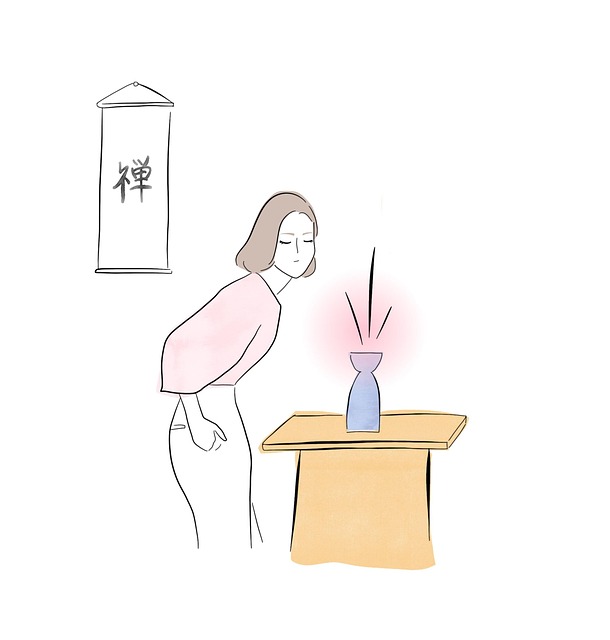Burnout, caused by prolonged stress, is a significant concern for healthcare providers, impacting well-being and patient care quality. Recognizing signs like irritability and cynicism is vital. Aurora Anger Management Therapy offers a solution by targeting anger management and teaching effective coping strategies to reduce stress, enhance emotional resilience, and prevent burnout. This specialized program focuses on self-care routine development, empathy building, and emotional well-being promotion, empowering healthcare professionals to navigate stressful situations better and achieve work-life balance. Organizations can further prevent provider burnout through supportive environments and community outreach programs, integrating conflict resolution techniques, and offering mindfulness exercises for relaxation and anxiety relief. Prioritizing self-care practices, including dedicated relaxation time, strong communication skills, and coping mechanisms like Aurora Anger Management Therapy, is crucial for long-term mental health and improved patient care.
“Healthcare provider burnout is a growing concern, impacting not just individuals but the broader healthcare system. This article explores comprehensive strategies to prevent burnout, focusing on both personal and organizational levels. We delve into the root causes and signs of burnout, highlighting the significant role of mental well-being. Furthermore, it introduces Aurora Anger Management Therapy as an innovative stress reduction technique. By exploring supportive work environments and self-care practices, healthcare organizations can foster a culture that prioritizes provider resilience.”
- Understanding Burnout: Recognizing the Signs and Causes
- The Role of Aurora Anger Management Therapy in Stress Reduction
- Creating a Supportive Work Environment: Strategies for Healthcare Organizations
- Self-Care Practices for Healthcare Providers: Prioritizing Mental Well-being
Understanding Burnout: Recognizing the Signs and Causes

Burnout is a state of emotional, physical, and mental exhaustion caused by prolonged or excessive stress. It’s more than just feeling tired; it’s a serious condition that can significantly impact healthcare providers’ well-being and their ability to deliver quality care. Recognizing the signs is crucial for early intervention. Common indicators include heightened irritability or anger, increased cynicism towards work, reduced professional efficacy, and physical exhaustion. Healthcare workers often experience burnout due to heavy workloads, long hours, emotional demands, and a lack of control over their work environment. These factors can lead to feelings of disconnection from patients and colleagues, hindering the emotional healing processes essential for mental health awareness and anxiety relief.
Aurora Anger Management Therapy is one approach that targets these underlying issues. By addressing anger management, healthcare providers can learn coping strategies to deal with stress effectively. This therapy facilitates emotional expression in a safe environment, helping individuals process and manage intense emotions associated with work-related pressures. Enhancing mental health awareness through such therapeutic interventions can prevent burnout, ensuring healthcare professionals remain resilient and dedicated to their crucial roles.
The Role of Aurora Anger Management Therapy in Stress Reduction

Aurora Anger Management Therapy offers a unique and effective approach to stress reduction among healthcare providers, who often face high-pressure situations on a daily basis. This specialized therapy focuses on addressing anger and its underlying causes, which can be significant contributors to burnout. By learning to manage anger constructively, healthcare professionals can significantly improve their emotional well-being. The therapeutic process involves teaching individuals strategies for self-care routine development, fostering empathy building, and promoting emotional well-being promotion techniques that help them navigate stressful scenarios more effectively.
This type of therapy encourages participants to gain insights into their triggers, develop healthier coping mechanisms, and enhance communication skills. Through these means, healthcare providers can reduce the impact of stress, increase job satisfaction, and maintain a better work-life balance. By prioritizing self-care and incorporating empathy building strategies into their daily practices, professionals in the healthcare sector can prevent burnout and provide superior patient care.
Creating a Supportive Work Environment: Strategies for Healthcare Organizations

Healthcare organizations play a pivotal role in preventing burnout among their providers. Creating a supportive work environment is essential for maintaining staff morale and well-being. One effective strategy is implementing community outreach programs that foster connections between healthcare professionals and the communities they serve. Such initiatives can enhance job satisfaction by providing opportunities for meaningful interactions and contributing to a larger purpose.
Additionally, integrating conflict resolution techniques and Aurora Anger Management Therapy into the organizational culture can significantly reduce burnout. By offering resources for stress management and anger control, organizations can help providers navigate challenging situations more effectively. This, in turn, promotes better patient outcomes and reduces the risk of emotional exhaustion. A holistic approach that combines supportive environments with evidence-based therapeutic interventions is key to fostering a resilient and satisfied healthcare workforce.
Self-Care Practices for Healthcare Providers: Prioritizing Mental Well-being

In the demanding field of healthcare, where long hours and high-stress environments are common, self-care practices are essential for maintaining healthcare providers’ mental well-being. Burnout prevention strategies should include dedicated time for relaxation and activities that rejuvenate both mind and body. This can range from mindfulness exercises and meditation to engaging in hobbies and spending quality time with loved ones. Additionally, cultivating strong communication skills and developing coping skills through methods like Aurora Anger Management Therapy can significantly enhance resilience against stress.
Effective self-care also involves setting clear boundaries between work and personal life. Healthcare providers should learn to prioritize their own needs and not hesitate to delegate tasks or seek support when workload becomes overwhelming. By incorporating anxiety relief techniques, such as deep breathing exercises or progressive muscle relaxation, professionals in the healthcare sector can better manage stress levels. Ultimately, prioritizing self-care is a proactive approach that fosters long-term mental health and enables healthcare providers to deliver their best care possible.
Healthcare provider burnout is a growing concern, but by implementing effective strategies, organizations can foster a supportive work environment and empower providers to prioritize self-care. Understanding burnout, recognizing its signs and causes, and adopting evidence-based therapies like Aurora Anger Management Therapy are key steps in stress reduction. Creating supportive spaces and encouraging self-care practices can lead to improved mental well-being among healthcare professionals, ensuring they remain resilient and dedicated to patient care.












